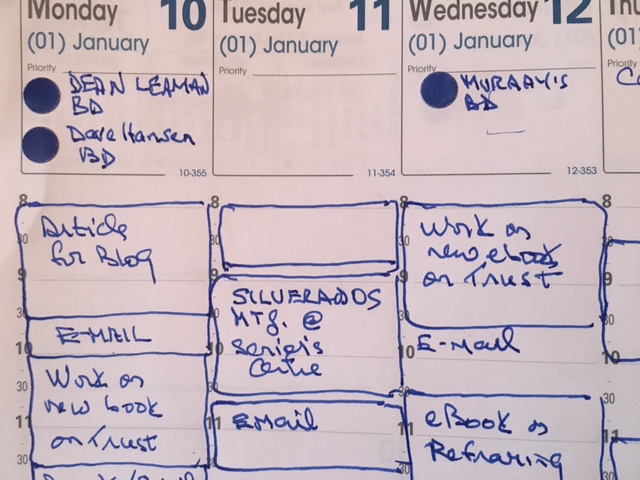A Time Management Article by Harold Taylor
If you check email just before you leave work in the afternoon, you will either work longer as a result, or leave it unanswered, which will distract you during your personal time. Uncompleted tasks cause stress. I recommend that you work on an important task, your top priority, for 90 minutes first thing in the morning, followed by your email. After 90 minutes of high-focus work, you will need either a break or a change of pace. Email will satisfy that need. Limit it to 20 or 30 minutes since you must work on your second priority or a continuation of the number one priority for another 90-minute stint afterwards, however you had scheduled it. If not completed, email could be continued after the next scheduled break time.
When you check email, I recommend you immediately delete any spam that has evaded your filters or anything else not worthy of your time. Then handle anything that takes 3 minutes or less, followed by anything that happens to be both urgent and important. If you run out of time before that happens, continue during your next break. You will never receive an email so urgent that it cannot wait 90 minutes. That degree of urgency requires the sound of a fire engine or someone banging on your office door. Hopefully, you will already have slotted time for your known important and urgent items for that day. Resist the urge to deviate from your plan. To remain proactive, you must schedule in the future, not the present.
These important tasks requiring more than your allotted time can be scheduled in your planner for the following day or later, depending upon the time still available on those days. If you are proactive, you will have 90% of today’s working hours already scheduled. Tomorrow you may still have about 20% of the day still available. On the following day, 30%, and so on. Do not leave all your scheduling until the night before. Planning your days should be a continuing process, with simply a quick review the day before.
Text messages are to email as email used to be to snail mail, so treat them accordingly. Instant messaging is no more important, but people are using it to get your attention. Your workday should be driven by your own outputs, not other people’s inputs.
If you want more information on how to become more proactive, read my eBooks on How to become proactive person, and The proactive manager. You can check out all my eBooks at our website.
Successful People Read. A Lot.
What do Warren Buffett, Mark Zuckerberg, Elon Musk and Oprah Winfrey have in common? They all read - a LOT! If you want to be successful you need to read. We have over 30 short ebooks designed to get you booked up fast!


